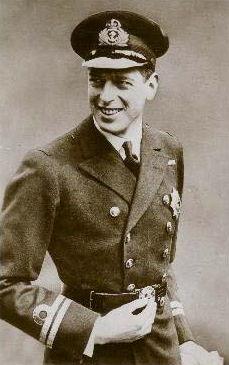MADukeKent
GEORGE WINDSOR, DUKE OF KENT 1902-1942

Grand Master of the
United Grand Lodge of England, 1939-1942
MEMORIAL
From Proceedings, Page 1942-176, Grand Master's Address:
In the afternoon of August 25, 1942, a radio report brought news of the death of the Duke of Kent, younger brother of King George VI of England. Flying in an army plane presumably for Iceland, he crashed in a lonely spot in Scotland and he and all but a single member of those flying with him were killed. Thus in the midst of life, while his greatness was still aspiring, he was struck down and became the first of the reigning family of England to give his life that the principles of democracy and liberty throughout the world might live.
At his death he was the Grand Master of the United Grand Lodge of England, having been installed on July 19, 1939, in a ceremony witnessed by some twelve to thirteen thousand Masons who had assembled in London for that event, coming from every quarter of the globe. Some present will remember the epic description of that occasion given us by our Junior Past Grand Master, Most Worshipful Joseph Earl Perry, at our September Communication in 1939. Brother Perry not only was present as a representative of this Jurisdiction, but also was chosen to respond for all the Masons of the Unifed States and later presented to His Royal Highness the Henry Price Medal.
In his word picture of the ceremonies attending the installation, written, as he stated, while returning to the United States, Brother Perry, in one of his concluding paragraphs, used the following language:
"Although nearly every person present knew that he or his family or his property might at any moment be laid as a sacrifice to the God of War, there was throughout the quiet steadiness of dauntless courage and invincible will. Come what might, for that afternoon, there was thought only of new devotion to King and country, and profound rededication to the principles of Freemasonry."
Scarcely three years after this event and after these words were written, he who occupied the Oriental throne at this unprecedented ceremony laid down his life, a sacrifice to the God of War. How easily he might have remained without the orbit of actual or potential combat, holding himself as a symbol of the traditions and the government of his country. Yet he chose otherwise. And so today we, in common with all Freemasons, join our English Brethren in paying this, a sincere and simple tribute, to one who lived and died a true Grand Master.